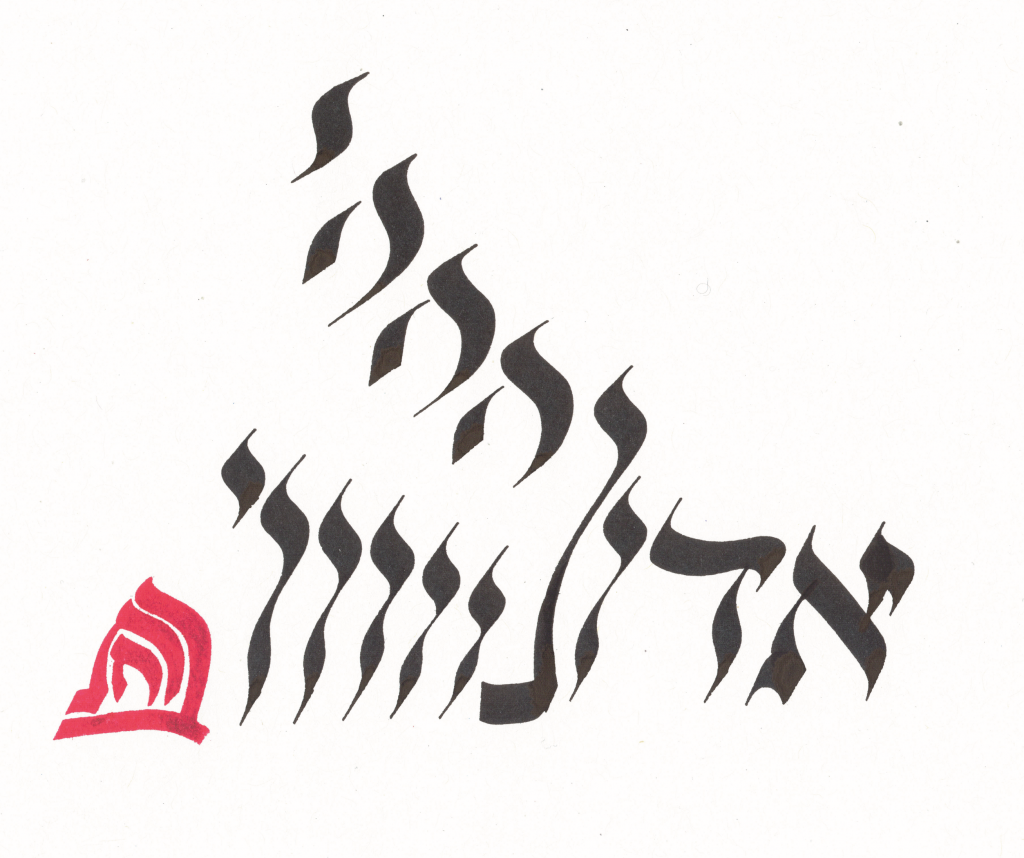
One.
In shul in New York a woman is expressing her surprise at my ability to approximate the sounds of khaf and khet. Conspiratorially she discloses that only Jewish people can make those sounds. I am not Jewish — not yet, anyway — but not wanting to lose her sudden confidence, I decide to leave the details of my khaf/khet acquisition unaddressed.
Two.
In shul in Nyack an elderly man is reciting an aliyah blessing in soft consonants and broad vowels I mistake for a series of errors, or the eccentricities of a regional accent. It is a regional accent, make no mistake — regions further away from Nyack than the ones I imagine. I am hearing something for the first time, for which I do not yet have the word: a tam, a Jewish synesthetic phenomenon of flavor in regions beyond the mouth, something I can taste in my ear.
Three.
In a shul in Miami a woman is asking me from where I got my Yiddish accent. Poland, she declares, answering her own question. It is the exact accent of her departed father. I don’t know where my accent comes from. It comes from everywhere and nowhere. I’ve never met her father and yet my accent is from him. It is certainly not from my father; prior events have alienated me from him, that place where I am from. What she recognizes of her father in my accent is this: the sound of an historic estrangement, between people and places.
Four.
In a shul on the Lower East Side a man named Gedalia is interrupting a performance. He delivers an impromptu lecture on the concept of a yiddishe tam. I cannot tell if he is giving it directly to me, previously the performer, or to the rest of the people in shul, previously my audience. Standing at the bima, I wonder at what point for him I had gone astray. Was it as soon as I had opened my mouth? Gedalia asks me: Have you ever heard of a yiddishe tam? Later, I will concede that the sound of his interruption was more readily recognizable as having a yiddishe tam — that to him, it sounded more authentic.
Five.
In a university courtyard in Ramat Aviv a fellow student is inspecting my nametag. He declares that nobody in Israel has a name like Mordechai any more. He had a commander in the army, Yedidyah, but that was ages ago, when people in Israel still had names like that. A name like Mordechai. A name from a purimshpil — a broad comedy set in another country, in another time, in another language, something you can watch on Israeli television, in black and white, with subtitles in Hebrew.
Six.
In a university courtyard in Los Angeles a group of teenage girls from an Orthodox youth retreat are passing by on a late Friday afternoon. With uncharacteristic bonhomie I call to them: Gut Shabes! They reply with one definitive word: Thanks!
Seven.
In a Soviet-era hotel in Minsk a man named Robbie is trying to convince me to sing a word in a lullaby, boym, as beym. I only know from boym, I place my trust in boym, an unknown transliterator’s decision to go with a word in one general Yiddish accent over a specific other. A decision from years before Robbie or I were even born. Later, when I sing the lullaby, the sound of beym rhyming with heym in my mouth for the first time is like a lock surrendering to the only key to which it will open.
Eight.
In a hotel lobby in the West Midlands a man is telling me that the experience of hearing Yiddish performed as classical music has struck him as bizarre. To be told what Yiddish sounds like in posh accents in a hotel in the West Midlands has struck me as bizarre. Later I will regret letting this pass unremarked.
Nine.
On a road in Massachusetts my husband and I are observing that almost every town name is from a place in England — Cambridge, Worcester, Gloucester, Plymouth — dismissively chalking this up to the poverty of the colonial imagination. Then there are transliterations of older Indigenous names — Chicopee, Nipmuc, Natick, Mashpee — and other transliterations — Salem — every other American biblical superimposition — Zion, Shiloh, Rehoboth, Bethel, Canaan, Carmel, Goshen — and the biblical names they never touched because they literally couldn’t wrap their prim mouths around them, names that will never know the banal violence of those flat accents — Pi-Hahirot, Ba’al-zephon, Be’er-lahai-roi.
Ten.
On a road in the Catskills my husband and I are discussing the state of American Shul Hebrew. Some members of the congregation found a davener’s Ashkenazi Hebrew to be humorous. I have never found Americans or Shul or Hebrew to be humorous. Americans ask themselves for the one millionth time what is it to be American. What is it to be an American Shul Hebrew, to have only one accent of Hebrew in shul? I’m not saying anything like “Diaspora: Love It or Leave It,” I declare. We laugh, but then I take it back because I realize it’s exactly what I’m saying. Fellow exiles, if you’re going to bother staying here, yucking it up in the pews at all of those Adonoys and torasos, perhaps you could learn to love them. To love us.